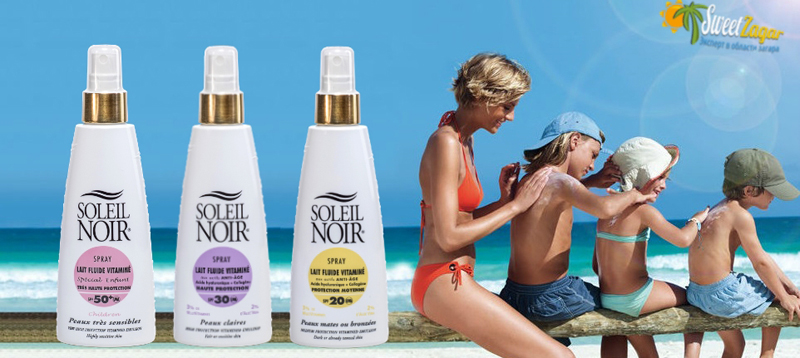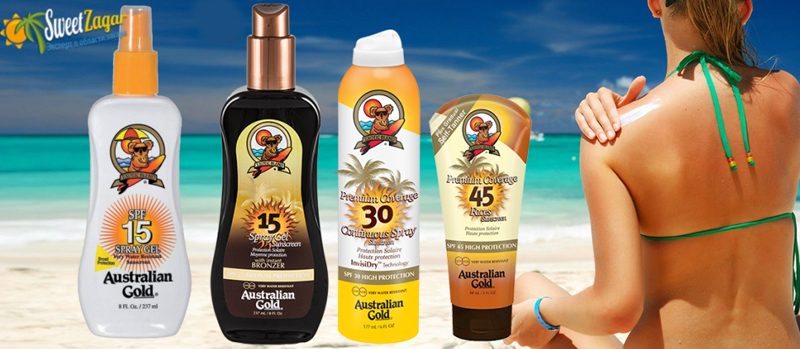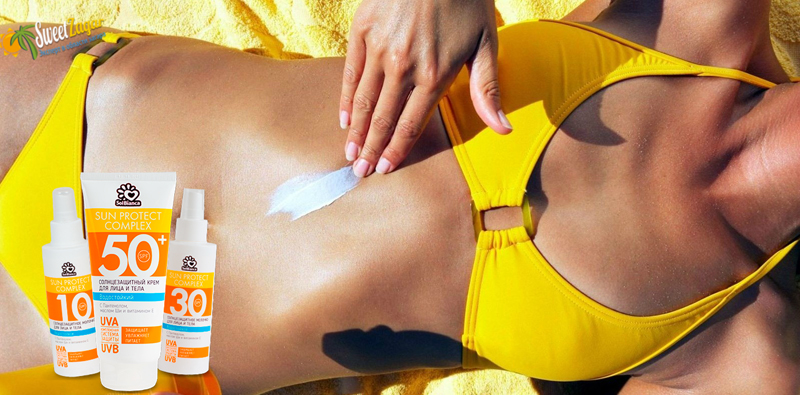SPF factor - what is it?
04 May 2017Every lover of sunbathing knows that without a special sunscreen on a fine summer day, it can be extremely dangerous to be outside. Scorching ultraviolet rays, which give the body a pleasant golden hue, can be detrimental to delicate skin if not protected by professional cosmetics.
Therefore, today in the beauty industry there is a huge range of protective products with an SPF factor: creams, lotions, sprays, and even. Such a variety allows you to choose the best option for each skin type, but first you need to figure out what is hidden behind the magic letters - SPF.
What does SPF mean?
The abbreviation, mysterious at first glance, is deciphered quite expectedly - Sun Protection Factor(translated from English. " sun protection factor"). The SPF value is calculated for each cosmetic product based on the amount of substances it contains that can absorb UV rays. Depending on the mechanism that provides the skin with maximum protection, SPF filters are:
Physical filters are effective against . They create a kind of reflective screen and thereby protect the skin from the harmful effects of ultraviolet radiation. Chemical components, on the contrary, adsorb.
Since each of these spectra is harmful to the skin in its own way, professional sunscreens harmoniously combine both of these filters for maximum skin care on a hot day. Depending on the SPF, they are able to filter a certain amount of ultraviolet radiation:
- from 2 to 4 - the base level of SPF from 50-60% of the rays;
- from 4 to 10 - the average filter level is from 75-85% UV;
- 10 to 30 - high SPF from 90-95% UV;
- from 30 to 50+ - ultra-intense level of protection from 95-99% of rays.
If you choose the right degree of protection, you can not be afraid of sunburn, overdrying of the skin and signs of photoaging: flabbiness, peeling and many small wrinkles.

French premium cosmetics Soleil Noir
How to choose the best sunscreen?
When choosing a tanning cream or lotion with an SPF factor, you must first take into account the natural skin phototype:

The skin of the face and décolleté is more sensitive, therefore, when choosing a cream for such a delicate area, you should add another 3-5 units to the recommended SPF. In addition, you should not expect that one remedy is suitable for all areas: firstly, the face is more exposed to radiation, and secondly, the delicate and sensitive skin in this area dries out much faster. Therefore, professional sunscreens for the face are essential in a beach makeup bag - the SPF factor in them is complemented by a rich cocktail of moisturizing and nourishing ingredients, natural extracts and vitamin-mineral complexes.
The leading position among the cosmetics of this line is occupied by French brand Soleil Noir. The creams released under this label contain a unique amount of vitamins and aloe vera gel that no other cosmetic company has been able to recreate.
How long can you stay under the sun?
Even the best sunscreen can't protect you 100% from UV burns. Therefore, cosmetologists have developed a special technique that allows you to calculate the optimal tanning time for each skin phototype. To do this, you need to conduct a small experiment:
- Strip your skin of make-up and skin care products and head out into the sun.
- Carefully monitor the behavior of the epidermis: as soon as reddish hues begin to appear, immediately go into the shade.
- Multiply the number of minutes spent in direct sunlight by the SPF of your sunscreen. This is how much time it takes to sunbathe to get attractive bronze shades and at the same time avoid redness and overdrying.

TOP 3 Common Misconceptions About Sunscreens
Despite the obvious benefits of sunscreen cosmetics, many ignorant women prefer to use it to a minimum or not at all. This behavior is explained very simply - they believe in common myths that it is time to debunk a long time ago:
1. The stereotype that cosmetics with a high content of SPF filters leads to a deficiency of vitamin D, which is produced in the body only in the sun, has no scientific justification. No cream can reflect 100% of ultraviolet rays, so the remaining spectrum is quite enough for the harmonious synthesis of calciferol.
2. The misconception that SPF funds are needed only on a sunny day is not only unfounded, but also extremely dangerous. Even in cloudy weather, about 40% of UV radiation reaches the ground, so getting a sunburn "without the sun" is very real.
3. The myth that any cream clogs pores and leads to acne in hot weather could be considered real 50 years ago. Today's professional sunscreens have a light texture and soft composition, so not only do not provoke inflammation, but also prevent it thanks to cleansing and moisturizing ingredients.

You should not rely "on chance" and expect that the skin will endure neglect and insufficient protection from the sun. By choosing professional sunscreen cosmetics with the right SPF level, you can not only avoid painful burns and photoaging, but also give your skin a pleasant bronze tint, and it is absolutely safe.




